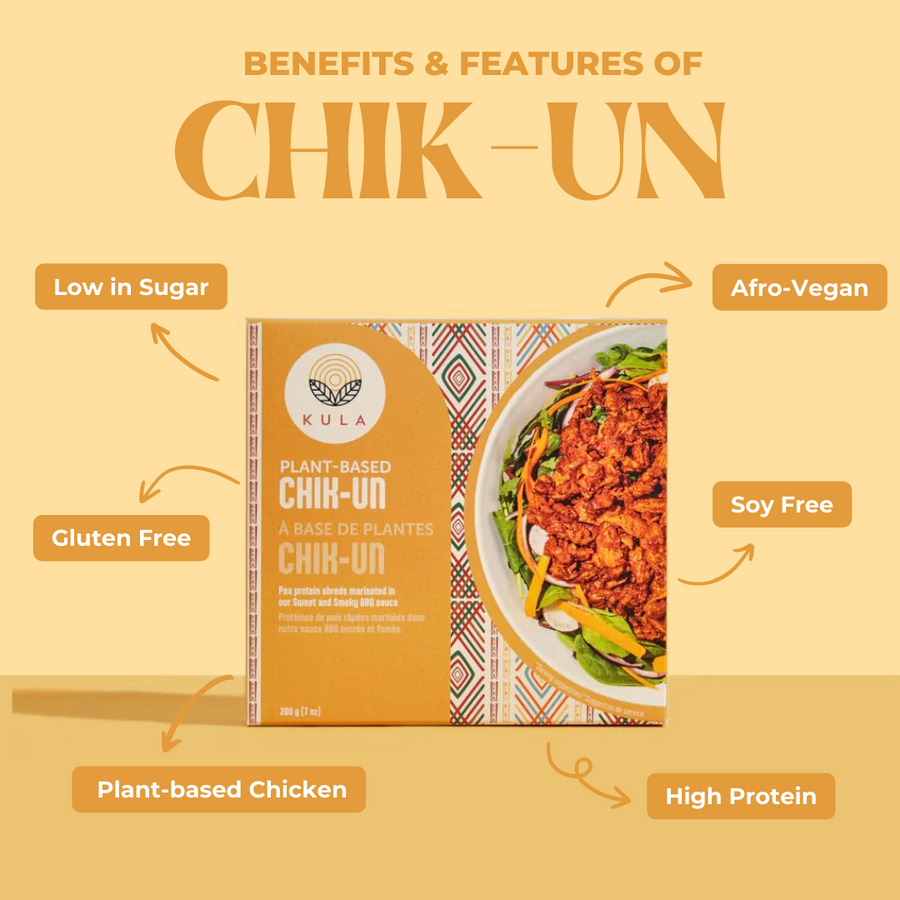All About Healthy Food: Advantages of Checking Out Plant Based Choices
The discussion bordering plant-based diets has actually acquired considerable interest over the last few years. Many individuals are checking out the potential health advantages, nutritional advantages, and environmental influences linked with these dietary options. As individuals come to be much more aware of their food's influence on wellness and sustainability, questions emerge about the practicalities of taking on such a way of life. What certain adjustments can one anticipate, and how might these options reshape not only personal health but likewise the planet's future?
Comprehending Plant-Based Diet Regimens
Numerous people associate plant-based diet regimens mainly with vegetarianism or veganism, these diet plans can include a wide range of consuming patterns that prioritize entire, minimally refined plant foods. Such diets usually consist of fruits, vegetables, entire grains, nuts, beans, and seeds, while limiting or eliminating animal products. This versatility enables people to tailor their nutritional choices according to individual choices and nutritional needs. Some may adopt a mostly plant-based diet plan while still sometimes consuming meat or dairy, frequently referred to as a flexitarian method. The focus remains on incorporating even more plant foods, which can lead to a diverse array of flavors and meals. Understanding these various analyses of plant-based eating is necessary for valuing its ease of access and charm in modern food culture.
Wellness Advantages of Plant-Based Foods
The health and wellness advantages of plant-based foods are significant, offering a nutrient thickness benefit that supports total health. Research study suggests that these foods can boost heart health and play a necessary duty in effective weight management. By integrating more plant-based options, individuals might boost their dietary options and promote long-lasting health.
Nutrient Density Benefit
Nutrient density plays a crucial function in the wellness benefits of plant-based foods, making them an engaging choice for those seeking a well balanced diet plan. Plant-based foods, such as fruits, vegetables, legumes, nuts, and whole grains, are often abundant in vital vitamins, minerals, and anti-oxidants while being lower in calories. This high nutrient thickness enables people to consume less calories while still fulfilling their nutritional requirements. In addition, these foods are loaded with dietary fiber, promoting digestive system wellness and aiding in weight management. By integrating nutrient-dense plant-based alternatives, consumers can enhance their total wellness, sustain their immune systems, and reduce the risk of persistent diseases. Eventually, the nutrient density of plant-based foods underscores their importance in a health-conscious way of life.
Heart Health Improvement
:max_bytes(150000):strip_icc()/45259671-97112006e572444a996dbbacfd4b8bed.jpg)
Weight Monitoring Support
Along with promoting heart wellness, a plant-based diet plan can substantially assist in weight management. This dietary strategy stresses whole foods such as fruits, vegetables, legumes, nuts, and whole grains, which are normally reduced in calories and higher in fiber compared to animal-based items. The high fiber web content assists increase satiety, reducing total calorie intake. Moreover, plant-based diet regimens are commonly rich in vital nutrients while reduced in undesirable fats, making it much easier to preserve a healthy and balanced weight. Plant Based Chicken. Research shows that people that adopt a plant-based lifestyle have a tendency to have reduced body mass indexes (BMIs) and experience even more effective weight management contrasted to those that eat meat-heavy diet regimens. Accepting plant-based choices is a calculated choice for reliable weight monitoring.
Nutritional Worth of Plant-Based Ingredients
Plant-based active ingredients are abundant in crucial nutrients, offering a varied range of vitamins, minerals, and anti-oxidants that add to total wellness. A contrast of protein resources discloses that while animal products are commonly deemed premium, many plant-based choices give appropriate healthy protein and other valuable substances. Understanding the dietary worth of these ingredients can help people make informed nutritional options.
Essential Nutrients in Plants
Nutrient-rich active ingredients discovered in plants offer a diverse variety of vital minerals and vitamins that add considerably to overall wellness. These active ingredients are abundant in vitamins A, C, and K, which support immune function, vision, and blood clotting, specifically. In addition, plants give crucial minerals such as magnesium, potassium, and calcium, important for heart health, muscular tissue function, and bone strength. The presence of fiber in plant-based foods help food digestion and advertises a healthy and balanced intestine microbiome. Antioxidants, discovered abundantly in vegetables and fruits, assistance fight oxidative stress and anxiety and decrease swelling. Additionally, many plant foods are reduced in calories yet high in nutrients, making them a superb option for those looking for to keep a healthy and balanced weight while making sure perfect nutrient consumption.
Comparing Healthy Protein Sources
Healthy protein sources differ considerably in their nutritional profiles, with plant-based active ingredients using special benefits. Unlike animal healthy proteins, which commonly contain hydrogenated fats and cholesterol, plant proteins tend to be reduced in these harmful elements. Legumes, nuts, seeds, and whole grains are rich in important amino acids, fiber, vitamins, and minerals. Lentils provide high protein web content together with considerable iron and folate, while quinoa is a full protein, offering all 9 essential amino acids. Furthermore, plant-based proteins are usually come with by antioxidants and phytochemicals that sustain overall health. The shift to plant-based healthy protein resources not only improves dietary consumption however also straightens with sustainable nutritional techniques, decreasing ecological impact and promoting long-lasting health benefits.
Ecological Influence of Plant-Based Eating
As understanding of environment modification expands, numerous individuals are checking out lasting nutritional options that can considerably reduce their environmental impact. Plant-based consuming has actually become a substantial contributor to reducing greenhouse gas exhausts, which are her comment is here mostly connected with animals production. The farming of fruits, vegetables, vegetables, and grains commonly needs less sources, such as water and land, contrasted to pet farming. Additionally, plant-based diet regimens can cause decreased deforestation, as less land is needed for grazing livestock or growing pet feed. By shifting in the direction of plant-based options, customers can support biodiversity and promote much healthier environments. Generally, welcoming plant-based consuming not just benefits individual health but additionally stands for a crucial step towards environmental sustainability and preservation efforts.
Conquering Common Misconceptions
While many individuals recognize the benefits of a plant-based diet regimen, a number of false impressions frequently prevent them from fully embracing this way of life. An usual belief is that plant-based diet regimens do not have sufficient protein; however, various plant sources, such as beans, nuts, and tofu, give adequate protein. In addition, some think that this diet regimen is pricey, when as a matter of fact, staples like beans, rice, and seasonal vegetables can be fairly affordable. One more mistaken belief is Bonuses that plant-based consuming is excessively restrictive, whereas it actually supplies a diverse selection of foods and flavors. Ultimately, numerous worry that a plant-based diet regimen may lead to shortages, yet with correct planning, people can get all necessary nutrients, including minerals and vitamins, while appreciating a variety of delicious dishes.
Tips for Transitioning to a Plant-Based Lifestyle
Making the shift to a plant-based lifestyle can be an enhancing experience, though it frequently calls for some support to browse the first modifications. Individuals are encouraged to begin slowly, including more fruits, vegetables, beans, and whole grains into their meals while lowering meat and dairy products usage. Dish planning is necessary; preparing a weekly menu can aid ease the change and avoid last-minute harmful choices. Discovering cooking methods and new recipes can also improve the experience and preserve enjoyment about plant-based eating. Furthermore, joining assistance groups or communities can provide motivation and share beneficial tips. Staying educated regarding nutrition guarantees balanced meals, protecting against deficiencies while promoting a healthy, gratifying plant-based way of life.

Delicious Plant-Based Meal Ideas
Exploring scrumptious plant-based dish concepts can influence people to accept a more nourishing diet regimen. One popular option is a hearty quinoa salad, featuring cherry tomatoes, cucumber, and a spicy lemon-tahini dressing. Another favorite is a full-flavored lentil stew, loaded with carrots, celery, and great smelling natural herbs, excellent for a comforting dinner. For morning meal, overnight oats made with almond milk, chia seeds, and topped with fresh berries provide a nourishing start to the day. Additionally, a vibrant veggie stir-fry with tofu and a selection of vibrant veggies can be a fast yet satisfying meal. Ultimately, velvety avocado toast on whole-grain bread, sprinkled with seeds and seasonings, provides an easy yet tasty treat. These meals showcase the range and splendor of plant-based eating.

Frequently Asked Questions
Can a Plant-Based Diet Supply Sufficient Protein?
The inquiry of whether a plant-based diet regimen can supply adequate healthy protein prevails. Countless sources, including legumes, nuts, seeds, and entire grains, can meet healthy protein requires effectively, sustaining a well balanced and nutritious diet regimen for people.
Are Plant-Based Diet Regimens Suitable for Children?
The suitability of plant-based diet regimens for kids depends on cautious preparation. a knockout post Sufficient nutrients need to be ensured, including proteins, minerals, and vitamins. With appropriate advice, such diet regimens can support healthy and balanced development and development in youngsters.
How Do I Eat in restaurants on a Plant-Based Diet plan?
Dining out on a plant-based diet plan includes seeking dining establishments with varied menus, requesting for alterations, and checking out vegan-friendly alternatives. Preparation in advance and connecting dietary preferences can improve the eating experience while preserving nutritional choices.
What Prevail Allergens in Plant-Based Foods?
Usual irritants in plant-based foods include soy, gluten, nuts, and seeds - BBQ Sauces. People following a plant-based diet plan needs to know these allergens and read tags thoroughly to prevent damaging reactions and ensure safe intake
Can Plant-Based Diets Aid With Fat Burning?
Research study shows that embracing a plant-based diet might assist in weight-loss due to its normally reduced calorie thickness and greater fiber material. This combination can improve satiation, assisting individuals manage their caloric intake properly. Numerous people associate plant-based diet regimens primarily with vegetarianism or veganism, these diet regimens can incorporate a broad range of eating patterns that focus on entire, minimally refined plant foods. Nutrient density plays an essential duty in the health and wellness benefits of plant-based foods, making them an engaging selection for those seeking a well balanced diet plan. Plant-based diet regimens have actually been shown to significantly improve heart health and wellness, as they commonly include elements that sustain cardio function. In enhancement to advertising heart wellness, a plant-based diet plan can significantly assist in weight administration. A typical belief is that plant-based diets do not have adequate healthy protein; however, various plant resources, such as legumes, nuts, and tofu, offer sufficient healthy protein.